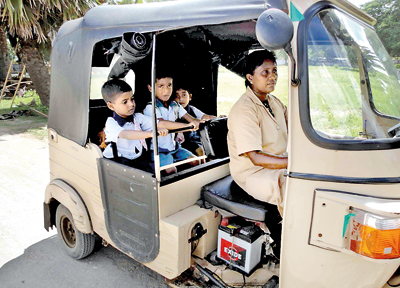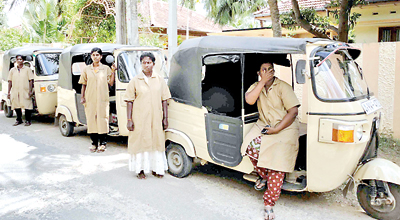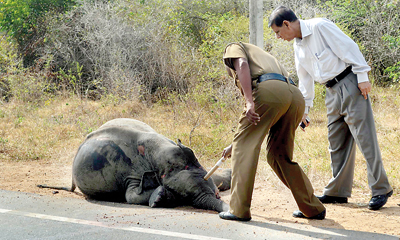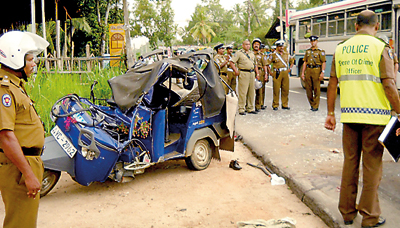News
Jaffna’s female trishaw drivers bridge the gap
The programme initiated by the Women Education and Research Centre (WERC) to introduce female three-wheeler drivers in the North, is a success, says Jaffna Divisional Secretariat’s Female Development Officer Uthayani Navratnam.
Since its inception in February this year, female drivers are seen in Jaffna, with the municipality allocating a three-wheeler stand for them in Jaffna. “Old women and children in particular hire female three-wheeler drivers, because they feel safe when travelling with female drivers,” says Uthayani.

On the road with her little passengers
Through this programme, trishaws were provided to females of households whose breadwinner was dead or disabled. There are over 40,000 widows in the Northern Province, of whom, more than 26,000 reside in Jaffna district alone. There are over 42,000 war widows in the Eastern Province.
Some of these widows are given a monthly Samurdhi allowance of Rs. 350, which is insufficient to lessen the hardships these women go through. Rameswaran Indrawathani (45), a mother of two, has driven a three-wheeler for eight months. “When my husband lost his right leg in a shell explosion in Athalan, we were helpless. We couldn’t find enough money for our children’s education and other expenditure. Now, as a trishaw driver, I earn Rs 500 daily, which makes things easy for us,” she said. She now gets hires over the phone she told the Sunday Times.
At its inception, three-wheelers were given to 20 women in Jaffna, 5 in Nallur and 3 in Uduvil, said Uthayani Navaratnam. “These women, despite being badly affected by war, had a desire to earn their living to overcome their hardships, which this programme has done,” she added.

Breaking barriers: The drivers wait for hires
WERC grants half the cost of the vehicle, while the balance is to be paid in monthly installments of Rs 10,000. As this liability and their daily expenses are very difficult for the women to bear, the organisation bears the total cost, and recovers the money over a period of time.
Also, male three-wheeler drivers lend a willing helping hand in case of an emergency or urgent repairs, the Sunday Times learnt.
However, while this has brought colour to their lives, some of the female three-wheeler drivers complain that motorcyclists make it hard for them to do their job.
Follow @timesonlinelk
comments powered by Disqus




















